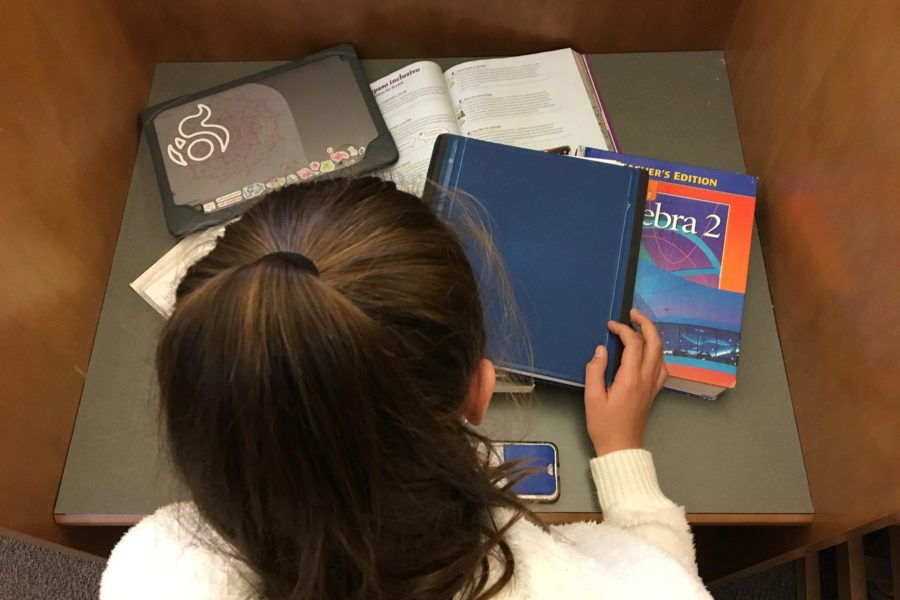Nine tips to help you ace midterms
Credit: Lily Tardif
With midterms fast approaching, WSPN’s Emma Diianni and Lily Tardif offer their best study tips to excel in your exams.
January 15, 2018
1. Stay organized
One of the best ways to do well on your exams is to keep your schoolwork organized. You’re going to want to look back at your past tests, quizzes and notes, so having all of it organized will make it that much easier when it comes time to study.
2. Talk with your teachers
Your teachers are the ones giving the test, so talking to them is a great study idea. You can often get more insight on the format of the exam, and talk through any units you’re unsure or worried about. Teachers don’t want you to fail, so they will most likely do everything they can to help.
3. Do what works for you
Whether it be flashcards, typing up your notes, going over readings or studying with friends, it is important to find a method of studying that works for you. It is easy to get caught up in what works for other people, but part of getting good grades is knowing yourself and doing what will help you. Unproductive studying can become a fatal mistake that no one wants to make.
4. Plan ahead
Do not wait until the night before your midterm to begin studying. Midterms cover all of quarters one and two, and trying to learn all of that material in one night is unreasonable. Making a study plan, and organizing specific days in which you will review for each subject, is a very smart tactic that will make last-minute studying a lot less stressful.
5. Talk to friends and other students in your classes
Some of the best advice comes from other peers who are taking a course with you. They may remember things you didn’t and vice versa. Older students who may have already completed the course can be a great source of advice because they were in your shoes in previous years. Older students know what went well and what didn’t, and can help you accordingly.
6. Review all old material
It’s important to look over all of your material from the class so that you can review topics that caused you trouble and organize which units you have questions on. Many teachers reuse questions from tests or quizzes word for word, so it’s always smart to look back at your past exams.
7. Don’t study too much
Over-studying can often confuse more than it helps. Studying too much can make all of your knowledge blend together, and it can often lead to unproductive studying. Over-studying can make you overthink even the smallest things. There is a fine line between the right amount of studying and too much studying.
8. Take productive breaks
Taking breaks is important, but taking breaks that will negatively affect your studying are consequential. A good break can include getting a snack, taking a walk or talking to a friend. A bad break would be spent on your phone or taking a nap. Those breaks can make it hard to get back into studying.
9. Put the phone down
Time spent on technology will make your eyes and brain tired. Social media will often distract you for longer than expected and can consume valuable time. Without distractions from social media, your studying will be more focused and productive.





![Last Wednesday, the Wayland School Committee gathered to discuss a number of topics regarding the health curriculum and Innovation Career Pathway course. Another large topic of conversation was the ways to potentially mitigate distracting cell phone usage. "These [phones] are going to distract your learning and social relationships," Superintendent David Fleishman said. "That's concrete right there."](https://waylandstudentpress.com/wp-content/uploads/2025/06/Screenshot-2025-06-04-at-9.49.31 PM-1200x886.png)

























